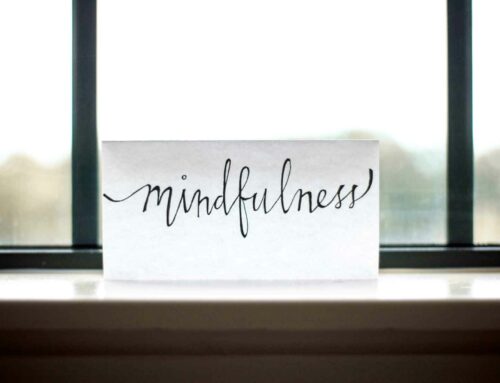The DBT skill called ABC PLEASE is used to increase emotional resilience and decrease vulnerability to future unpleasant emotions. By accumulating positive experiences, building your skills and talents, and thinking ahead about how to cope, you’ll be more likely to bounce back quickly from a negative experience. PLEASE skills offer guidelines for staying in good physical health to help you bounce back from unpleasant emotions.
ABC
PLEASE
ABC
When you master the ABC skills, you’ll know the importance of positive experiences, be ready to increase your hobbies and talents, and understand how to prepare for difficult experiences beforehand.
ACCUMULATING POSITIVE EXPERIENCES
We usually consider life to be going well when we have more positive experiences than negative experiences. Like a bank account, we need to put in more than we take out to be stable. When we have a high amount of positive experiences and then have a setback, we’re more likely to bounce back quickly. (Think: a $10 withdrawal out of an account with $1000.) Yet, when you have a setback after a week of layoffs, bad grades, and relationship woes, any small issue could feel catastrophic. (Think: a $10 withdrawal out of an account with $13.)
At Sunrise, we help our students accumulate these experiences by exposing them to a variety of activities. These include camping, rock climbing, rappelling, and activities in the nearby city to build positive emotions into their lives regularly. This improves the likelihood that our students will experience more positive emotions. When a student does go through a time of sadness, anxiety, or other unwanted emotion, she has many positive memories to look back on. These memories remind her that life can be joyous and help her move forward.
To have an effective bank account of positive experiences, you need to participate in both short-term and long-term experiences.
To have an effective bank account of positive experiences, you need to participate in both short-term and long-term experiences.

ACCUMULATING SHORT-TERM POSITIVE EXPERIENCES
A short-term positive experience is any activity you enjoy and can do regularly. These are simple activities such as calling a friend, spending time in the garden, or playing a game with your family. Most of us do these things occasionally, but their effects wear off quickly. Doing them more frequently—at least one thing daily—builds our resilience against negative emotions.1
A short-term positive experience is any activity you enjoy and can do regularly.
Be mindful of positive experiences
Have you ever been physically present for an event, but emotionally missed it because your mind was elsewhere? In order to truly enjoy an experience, you must be mindful of it. If you notice your attention starting to wander, or other thoughts begin creeping in, gently redirect your attention back to the activity at hand. In time, focusing on your enjoyable activity will become a habit.
Positive Experiences List
Including a variety of positive experiences into your life ensures that they’ll stick. Here are some suggestions of activities, whether or not you have energy to spare.
HIGH-ENERGY
• Go for a run
• Work outside
• Clean the house
• Go for a walk
• Start a home-improvement project
• Play with a pet
• Go for a scenic drive
• Play an educational game
• Spend time with children
• Explore a new part of the city
• Visit your favorite store
LOW-ENERGY
• Write a letter to a friend
• Do a craft
• Watch a favorite show or movie
• Journal
• Call/text a friend
• Look through photos
• Plan holiday gifts
• Plan the week’s meals
• Write a story
• Read a book
• Download a new app
Sharing pleasant activities with your teen
Accumulating positive experiences is better when shared with someone else. Intentionally create positive experiences with your teen to help build a stronger relationship, especially if your relationship has been reduced to discipline and arguments. Here’s a list of things to do with your teen:
Clothes shopping
Begin a craft
Window shopping
Go for a drive
Go out to lunch
Bake cookies
See a movie
Take photos
Take a walk
Get facials
ACCUMULATING LONG-TERM POSITIVE EXPERIENCES
Long-term positive experiences are meaningful and lasting. These are the experiences—or the steps we take toward the experiences—that help us build a meaningful life. Long-term experiences could include graduating from high school, attending college, traveling, a dream job, or having a healthy family. The long-term positive experiences that will be most important to you depends on what you value in life.
Long-term positive experiences are meaningful and lasting.
Values and Priorities
If you’re struggling to identify long-term goals that will bring you happiness, consider creating a list of your top values. A clear understanding of what you value in life can help you know what actions to take to honor those values. Be sure to prioritize your life around the things you value.
Taking Small Steps
Small steps toward big things can make a meaningful difference in our lives. Identify a goal and break it into feasible steps. If your goal is to get into a good college, your first step might be studying for your upcoming Spanish test. These smaller tasks not only make the big goal seem more manageable, they are also daily reminders of what you’re working toward.
Pay Attention to Relationships
Having plenty of healthy relationships is a key factor in our long-term happiness. Be sure to nurture your current relationships and look for opportunities to build new relationships.
Avoid Avoiding, Avoid Giving Up
When our stressors have piled up, we are more vulnerable to unwanted emotions. Prevent additional stress by tackling issues head on instead of ignoring or procrastinating them.
Sharing pleasant activities with your teen
Accumulating positive experiences is better when shared with someone else. Intentionally create positive experiences with your teen to help build a more positive relationship, especially if your relationship has been reduced to discipline and arguments. Here’s a list of things to do with your teen:
BUILD MASTERY
Building mastery means learning and becoming proficient in new skills (and not just DBT skills). It encourages you to engage in hobbies and talents that you love to do. When you have a repertoire of activities that you enjoy and excel in, it builds your self-confidence and ensures that you feel capable and talented on a regular basis. You also have something to fall back on in times of boredom, anxiety, or depression. Though you may not want to in the moment, engaging in one of these activities can alleviate or eradicate the unwanted emotions.
Building mastery also means that you’re not planning for failure. Instead, you assume that you’ll be successful in each situation you’re placed in. As you gain more experience being successful in various situations, you’ll feel more confident in your ability to overcome unwanted emotions.
When you have a repertoire of activities that you enjoy and excel in, it builds your self-confidence and ensures that you feel capable and talented on a regular basis.

COPE AHEAD
When you cope ahead, you prepare for events that you know are going to be difficult for you2. This could be a class or work presentation, a job interview, or an upcoming test. Prepare for that situation both mentally and emotionally and maybe even physically! What do you need to do to be the most prepared that you can be? How do you prepare in terms of regulating your emotions? What will help you feel more confident?
If you’re nervous about an upcoming job interview, you might prepare by researching common interview questions. You can take a mental walk through your work history and identify several impactful experiences to draw upon during the interview. Having this information ready to go will help alleviate anxiety when it’s time for your interview.
When you cope ahead, you prepare for events that you know are going to be difficult for you.
PLEASE
It’s hard to be emotionally healthy when you’re not physically healthy. The PLEASE skills in emotion regulation remind both parents and children the importance of taking care of our bodies.
The PLEASE skills in emotion regulation remind both parents and children the importance of taking care of our bodies.
PL
Physical Illness
Treating physical illness. When you’re sick and miserable, it impacts your emotions negatively. When we don’t feel well, we are in a state of misery and dread. You’re not able to perform at your best, which impacts your emotions.
E
Eating
Balanced eating. When you don’t have proper nutrition, you may feel sluggish and not have enough energy. Caffeine, for example, can make you anxious with a crash later. Instead, opt for food that provides steady energy throughout the day.
A
Avoiding mood-altering drugs
Avoiding mood-altering drugs. This means non prescribed medications. Prescribed medication is managed and regulated to help you balance chemicals, and there’s nothing wrong with that. The key to this skill is to properly take medication. Mood altering drugs are drugs such as street drugs, alcohol, and misusing prescriptions—substances used for self-medicating and not being monitored by a professional. Instead of helping you properly manage your emotions, these drugs will likely dysregulate your moods.
S
Sleep
Balanced sleep. Read your body and be in tune with the amount of sleep you need. Adequate, restful sleep provides you with the energy needed to complete daily tasks and manage your emotions. Have you ever cried over nothing when you felt exhausted? You’re not alone. When we’re tired, it’s easier to get overwhelmed and have less patience or more anxiety. Yet, when we’re adequately rested, we can readily manage those emotions.
E
Exercise
Exercise. This skill is often neglected by both teens and busy adults. Exercise is crucial to our physical, emotional, and mental well-being. Exercise can decrease negative emotions such as anxiety and depression3. Not only can it alleviate these symptoms in the moment, but over time it can also help you build resilience to negative emotions.
Don’t forget that “exercise” doesn’t have to mean high intensity cardio or other exercises that stress burning the most calories in the least amount of time. In most countries, exercise looks very different. It’s a walk to the market, an evening bike ride with the family, or an afternoon in the garden. Don’t let the Americanized ideals of exercise overwhelm you and stop you from doing the activities you love.
Prior to enrolling at Sunrise, many of our students felt they had no control over their emotions, leaving them feeling miserable and hopeless. The ABC PLEASE skills offer very specific steps that lead to more control of emotions and resiliency when unwanted emotions do creep in. Emotion regulation helps students and their families have hope that they can change their emotional experiences.
At home, you can help your child improve emotion regulation by holding yourself and your daughter accountable to the ABC PLEASE skills. If you’re not engaged in these skills, you can’t expect her to be. By demonstrating your own self-care, you give your daughter permission to take care of herself as well.
By demonstrating your own self-care, you give your daughter permission to take care of herself as well.
WE ARE COMMITTED TO THE SUCCESS OF YOUR DAUGHTER, AND YOUR ENTIRE FAMILY
Sunrise uses more comprehensive outcomes than any other fully integrated DBT program. By integrating DBT into every aspect of our program, your daughter will live the skills, not just learn them. We focus on the family to create a healthy system in which your daughter will thrive after returning home. Through therapy, activities, academics, and support, your daughter will become a healthy young woman with a passion for life.
If practicing emotion regulation and other DBT skills at home hasn’t been enough to help your daughter and family, we’re happy to discuss treatment options with you. Call us at 866.754.4807 to determine if Sunrise would be a good fit for your daughter.
Download Emotion Wheel.
References
1 “The relationship between organised recreational activity and mental health” Department of Local government, Sports and Cultural Industries
2 “Plan Your Way to Less Stress, More Happiness” Time, May 31 2011
3 “The Mental Health Benefits of Exercise” helpguide.org




